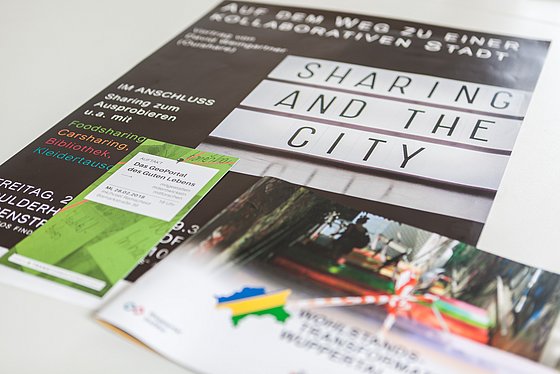Research Profile

Research Focus
The Interdisciplinary Center focuses on sustainability and transformation research. In addition to disciplinary and interdisciplinary research approaches, TransZent uses in particular transdisciplinary and transformative research approaches and contributes to their conceptual and methodological development. The members of TransZent are currently focusing on topics such as regional economics, sustainable mobility & energy, political economy & social theory and education for sustainable development. TransZent's research projects are usually funded by third-party research grants (see left).
Transformation Research & Transformative Research for Sustainable Development
In the view of TransZent, transformation and sustainability research can only be carried out in an inter- and transdisciplinary perspective, i.e. through the exchange between social, cultural, economic, natural and technical sciences as well as actors from the realm of practice. The aim is to understand transformation processes in a multidimensional way and to investigate them in their interactions and on different levels.
It should be considered that international transformation research discusses transformation as a very complex and multi-faceted concept. In the humanities and social sciences, transformations are originally understood to mean fundamental, groundbreaking and cross-sectoral developments and disruptions in economic and social systems that do not always have to progress in a targeted and controlled manner. Depending on the theoretical approach of transformation research (e. g. structural functionalism, modernization theory, structuralism, historical institutionalism, development economics, and methodological individualism) the focus is more on structures, institutions, culture, contingency and technologies or on actors, decisions and questions of governance, respectively. There is not always sufficient discrimination against the concept of transition.
When we talk about a transformation to sustainability, social and economic developments are supplemented by ecological ones and their interactions are taken into account. Here, developments in society as a whole must be shaped with regard to planetary boundaries and non-sustainable development paths must be abandoned. Both the needs of present and future generations are to be taken into account globally to locally. A descriptive and explanatory perspective is complemented by an explicit prescriptive approach. In addition to systems knowledge, this approach also aims to acquire target and transformation knowledge for sustainable development and identifies success and obstacle factors in addition to development paths. The focus here is on the design perspective; transformative research then supplements transformation research. Transformative research is not limited to observation, analysis and knowledge generation. It also catalyzes and/or initiates tangible real-world developments based on the analysis of real-world sustainability problems, often in cooperation with practitioners. The Great Transformation (WBGU) is becoming the task of society as a whole, in which science is also actively involved.
In the meantime, smaller-scale processes of change are being discussed in literature under the concept of transformation as well, such as the transformation of cities and their districts. TransZent follows an explicit action-theoretical perspective in this debate. Accordingly, transformation processes are institutionally limited (as a result of EU, federal and state legislation). At the same time, a wide range of possibilities opens up for change, e. g. at municipal level through the interaction of city administration, business and society. Regarding institutions, room for interpretation can be used and extended by mechanisms such as layering, drift or conversion. In so-called real-world laboratories, interventions can be developed and experimentally implemented in cooperation with practitioners in order to test various sustainability concepts and develop scientifically sound and socially robust orientations.
